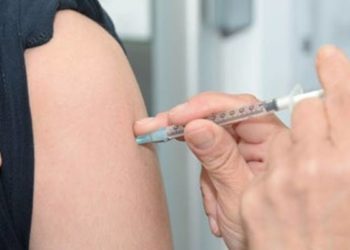Meningococcus B rates higher among college students compared with noncollege peers
1. College students were at significantly higher risk of contracting meningococcus serotype B (MenB) disease compared with noncollege students in the same age group.
2. Less than 25% of college students who contracted meningococcal disease had received at least one dose of the MenB vaccine.
Study Rundown: While the overall incidence of meningococcal disease is low in the United States (US), and has been decreasing for the past 3 decades, studies conducted prior to the licensing of several meningococcal vaccines suggest infection rates are higher among college students living in dormitories. While 2 vaccines (one covering bacterial serotype B [MenB] and one covering serotypes ACWY [MenACWY]) are currently recommended for populations at increased risk, MenB vaccine coverage has been estimated to be <10% among 16 to 18-year-olds.1 In this study, investigators analyzed data collected from a national surveillance system to evaluate the relative risk (RR) of meningococcal disease among college versus noncollege students aged 18 to 24 years. Serotype data was also obtained and described in this report. Results showed an overall low incidence of meningococcal disease in this age group and almost 60% of cases caused by the MenB serotype. College students had a significantly greater risk of contracting MenB compared with noncollege persons, and were significantly more likely to have received at least one dose of the MenACWY vaccine. Less than one-fourth of college students and one-fifth of noncollege persons with meningococcal disease received at least a single dose of the MenB vaccine. This study is limited by lack of data on risk factors related to meningococcal disease or carriage among college students. Results of this study suggest the need for increased patient education surrounding the increased risk of MenB among college students and the availability of the MenB vaccine.
Click to read the study, published today in Pediatrics
Click to read accompanying commentary in Pediatrics
Recommended reading: Risk factors for meningococcal disease in college students
In-depth [epidemiologic study]: Investigators evaluated data from the US National Notifiable Diseases Surveillance System (NNDSS) to describe the epidemiology and RR of meningococcal disease among college students versus noncollege students aged 18 to 24 years from 2014 to 2016. Serotype analysis isolates was performed on disease-causing isolates from cases that occurred in 45 states (98% of the US population. Of the 1174 confirmed cases of meningococcal disease, 166 (14.1%) occurred in people aged 18 to 24 years, 83 of whom (50.9%) were college students. The overall annual incidence of meningococcal disease in this age group was 0.17 per 100 000. MenB was the most common serotype overall (88 cases, 58.3%) and college students had a significantly higher risk of contracting MenB compared with noncollege persons (RR 3.54, 95%CI 2.21-5.41). The combined incidence of other serotypes (C, W, Y) was similar among college and noncollege persons (0.03 cases vs. 0.05 cases per 100 000 respectively; RR 0.56, 95%CI 0.27 – 1.14). MenB outbreaks were reported only among college students and accounted for 31.7% of the MenB cases in this group. College students were significantly more likely to have received at least one dose of the MenACWY vaccine compared with noncollege persons (86.9% vs. 39.6% respectively, p < .01) while there was no difference in MenB vaccine rates (22.9% vs. 17.5% respectively, p > .99). Disease outcomes were similar among college vs. noncollege students (mortality 13.0% vs. 11.8% respectively, p = .83).
1. MacNeil JR, Blain AE, Wang X, Cohn AC. Current epidemiology and trends in meningococcal disease-United States, 1996-2015. Clin Infect Dis. 2018;66(8):1276–1281
Image: PD
©2019 2 Minute Medicine, Inc. All rights reserved. No works may be reproduced without expressed written consent from 2 Minute Medicine, Inc. Inquire about licensing here. No article should be construed as medical advice and is not intended as such by the authors or by 2 Minute Medicine, Inc.








